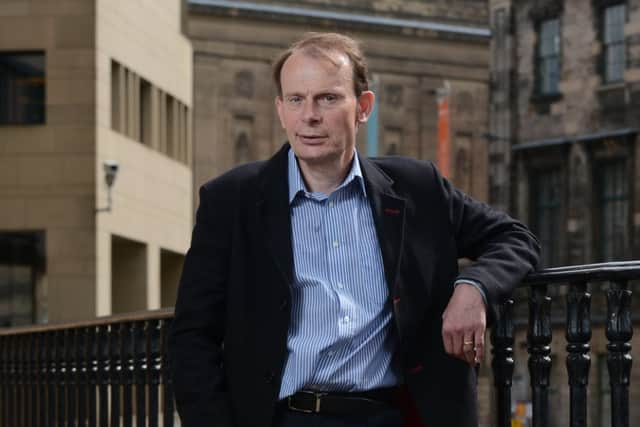The ‘funny turn’ that could be a major stroke


Only one in five of people who experience symptoms of a transient ischaemic attack (TIA) call 999, the Stroke Association revealed.
More than a third who had suffered a TIA thought it was just a funny turn, while 47 per cent did not believe their symptoms could be a medical emergency, according to the survey of 670 stroke survivors.
Advertisement
Hide AdAdvertisement
Hide AdCampaigners warned that it meant that thousands of people in Scotland and across the UK were putting their lives at risk by not reacting to a TIA, which is the same as a stroke but with symptoms lasting a much shorter amount of time.


The Not Just a Funny Turn campaign was backed by Scottish broadcaster and former Scotsman journalist Andrew Marr, who failed to realise he had had two mini-strokes before suffering a major stroke last year. The Stroke Association said that if all TIAs were treated in time, around 10,000 strokes could be prevented every year in the UK and more than 3,000 lives could be saved.
Each year, around 46,000 people in the UK suffer from a mini-stroke for the first time. One in 20 people will have a major stroke within two days of a mini-stroke and this figure rises to one in 12 within a week of a TIA.
The charity’s poll also found that a quarter of people who had sought medical help said their healthcare worker did not recognise they had suffered a TIA, and 23 per cent were given no information or advice on what lifestyle changes they could make to prevent a stroke.
The charity said there needed to be better public awareness about mini-strokes. It said it was essential that health and social care workers could recognise the symptoms so patients could be referred quickly to a specialist.
Professionals should also be able to provide better information, support and advice for patients so they can make lifestyle changes to reduce their chances of further TIAs or strokes.
Andrea Cail, Scotland director of the Stroke Association, said: “The greatest risk of having a major stroke is within the first few days after a mini-stroke. However, for many it doesn’t feel like an emergency because the symptoms are brief or mild.
“Too many mini-stroke patients delay calling 999 when their symptoms start and instead choose to book a GP appointment or visit their optician for advice because of their visual symptoms.”
Advertisement
Hide AdAdvertisement
Hide AdAndrew Marr said: “I had two mini-strokes before going on to have a major stroke. I was one of the thousands of people who dismissed the warning signs – simple ignorance.
“Although I went on to have a stroke, my recovery has been jogging along well. Not everyone is that fortunate. The Stroke Association’s Not Just a Funny Turn campaign aims to make more people aware of the symptoms of mini-stroke, so that they can act fast and hopefully prevent something more serious.”
Symptoms of a TIA can include numbness or weakness on one side of the body, loss of vision or blurred vision in one or both eyes, memory loss, confusion or a sudden fall.
Professor Keith Muir, professor of clinical imaging at Glasgow University and a consultant neurologist, said: “The risk of stroke in the first few days following a mini-stroke is high – that’s why it is better to think of it as a ‘warning stroke’.
“It requires urgent investigation and treatment.
“We have effective treatments which mean that major, disabling strokes could be prevented if treatment can be started immediately, but it’s clear that the public needs to be more aware of the risks associated with a mini-stroke, and health professionals need to be able to identify the warning signs and recognise their importance.”